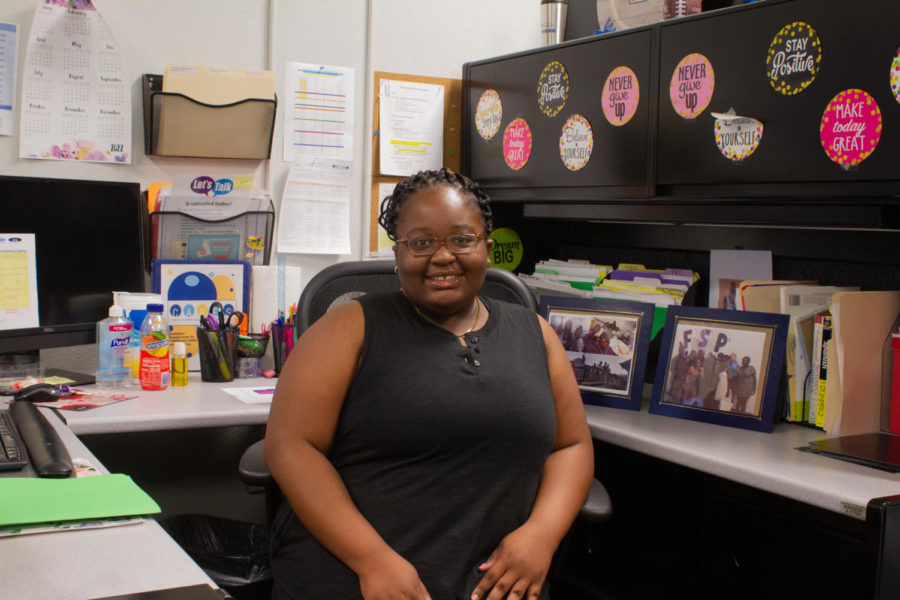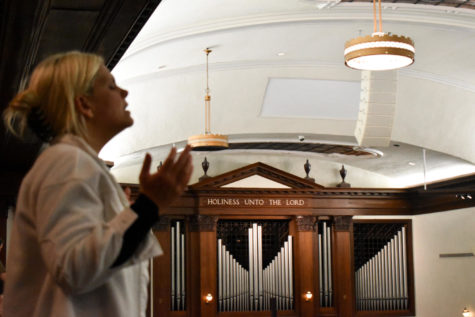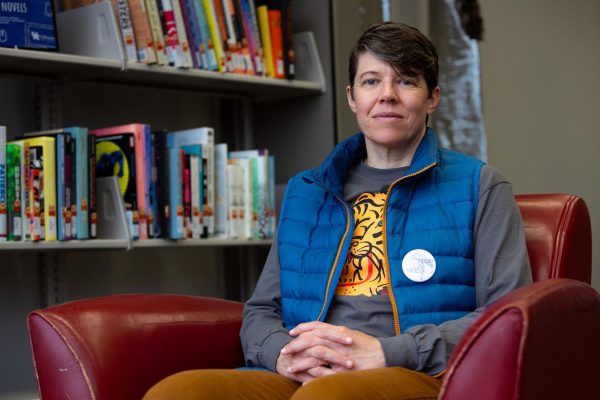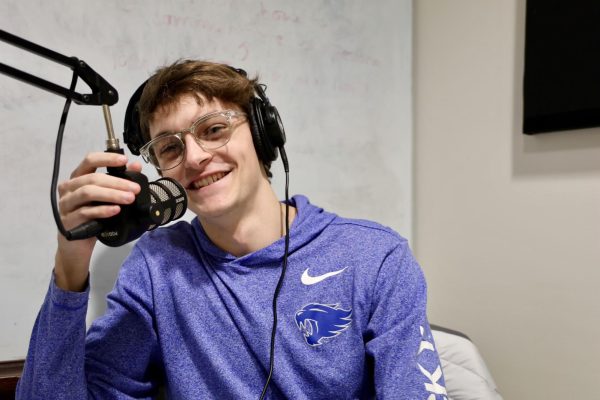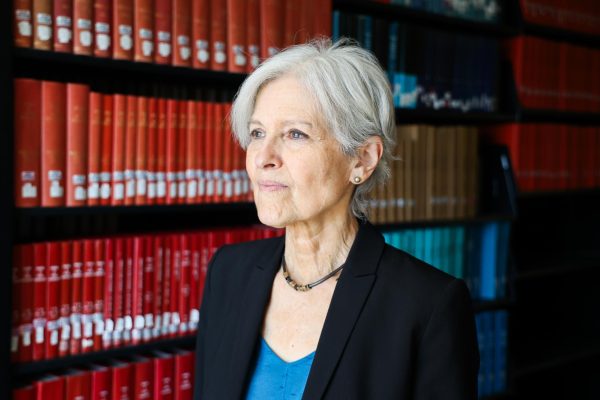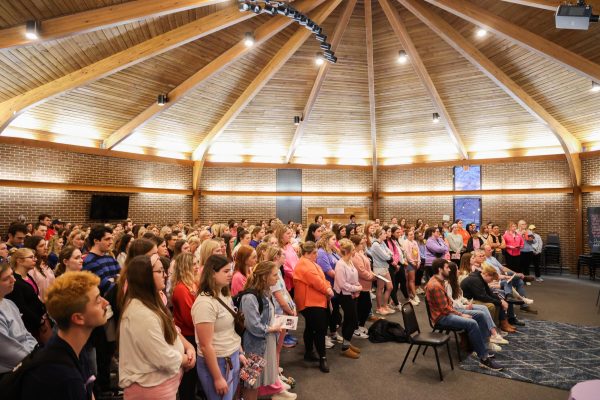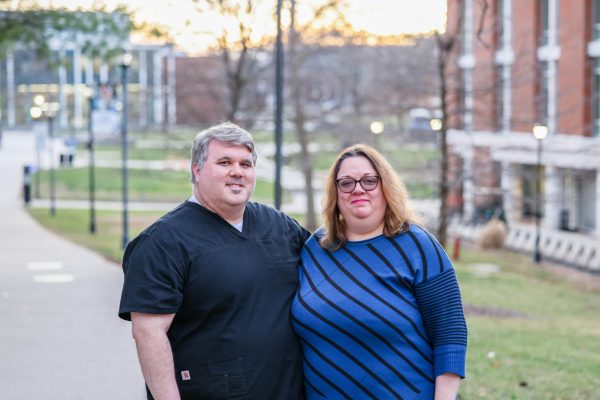CARES Center increases retention and community for minority students
CARES Administrative Support Associate, Aku Fiagbeto, poses for a portrait on Wednesday, Sept. 21, 2022 at the CARES Center at the University of Kentucky. Photo by Maria Rauh | Kentucky Kernel
September 21, 2022
Located in McVey Hall, the Center for Academic Resources and Enrichment Services, or CARES, offers academic and social resources to students who need additional support in their college careers, especially students of color.
Aku Fiagbeto, the CARES Administrative Support Associate, described the center as a “secondary admissions office.”
“Our CARES students have their own counselor … They do the exact same things as an admissions counselor would do and like their advisor would do, and they help them throughout their entire career at UK,” Fiagbeto said.
According to its website, UK’s Vice President for Minority Affairs established CARES in 1978 to focus on increasing retention among minority students.
CARES also provides tutoring and monitored studying sessions, particularly focused around math and science, in multiple study rooms and common areas around McVey.
“It’s quiet here,” freshman dietetics major Jaden Cobbins said regarding the CARES Lounge. “I usually just come in here and do work and then head downstairs to my UK 101 class.”
Many of the students CARES tutors received the William C. Parker Diversity Scholarship. Fiagbeto emphasized that the center does not give out the scholarship; it only provides resources to recipients. These recipients include freshman psychology major Naveah Crowe and freshman sports communication major Ava Abel.
Crowe said she and Abel attended a meeting for scholarship recipients and were put in a CARES Canvas course. From there, they received information about study room locations and tutoring opportunities.
“For the study groups, you have to do an hour each [week], based on the type of classes that you take,” Crowe said. “I take chemistry, so I have to take an hour studying every week.”
Students who are not currently enrolled in math or science classes instead attend monitored study groups, where they can study any subject. However, Crowe said many students simply attend monitored study due to a lack of space for homogenized study sessions.
CARES also offers work-study programs for students who are eligible for federal aid to hold a job as a student. Senior Jada Peden works in the CARES front office through the work-study program.
“Most work-studies allow you to be able to study why you’re at work. It’s like a low, minimal job of working the front desk. It’s okay for you to work on some (school)work while you’re at work, and they’re very flexible with their schedule,” Peden said. “It’s a good amount of money.”
Peden said she also appreciates the close proximity her job puts her to advisors.
“The counselors are happy to talk to me whenever I need to, and they can help me out with any resources I need,” she said. “I used to go to the counselors for academic help, student involvement, learning about new clubs, financial help, all kinds of stuff like that.”
In addition to its in-house services, CARES also partners with the MLK Center and the UK Counseling Center to organize programs like My Brother’s Keeper, Sisters Inspiring Sisters and Brothers Chill ‘N Chat, all groups aimed at creating community and increasing retention within students of color.
CARES Freshmen Counselor and Program Advisor Howard Johnson transferred to UK from BCTC wanting to improve student support.
“I applied for this position three times. I really liked the focus because it was focused more on students of color and students that are systematically disadvantaged,” he said. “I really wanted to see how we could improve retention.”
Johnson said he advises students on both a day-to-day basis and around more crucial times in the semester, such as midterms and finals.
“We work with students in academic progress sessions … where we do a deep dive into where the student is at currently in their academics and see what academic resources we may need to connect them to,” he said. “We also look at their social interaction on campus, so if the student needs to find friends in clubs and organizations that [are] outside academics to improve their enrichment experience at UK, then we help connect them to those resources.”
Johnson said that although the programs offered are targeted toward students of color, any student can walk into CARES and receive support.
“We don’t turn away any student because we’re a Student Success Office,” Johnson said. “If any student walked in the office asking for help regarding anything, it is our responsibility to try to help that student in any way…We don’t just send students to a department. We pick up the phone and we call that department and send students specifically to an individual.”
Fiagbeto agreed, saying the program’s focus on diversity is not meant to exclude anyone.
“We don’t want to be misconstrued as that only minority students can be CARES students,” she said. “It’s for every student, but it is targeted for minority students who may feel like they don’t have that resource.”









































































































































